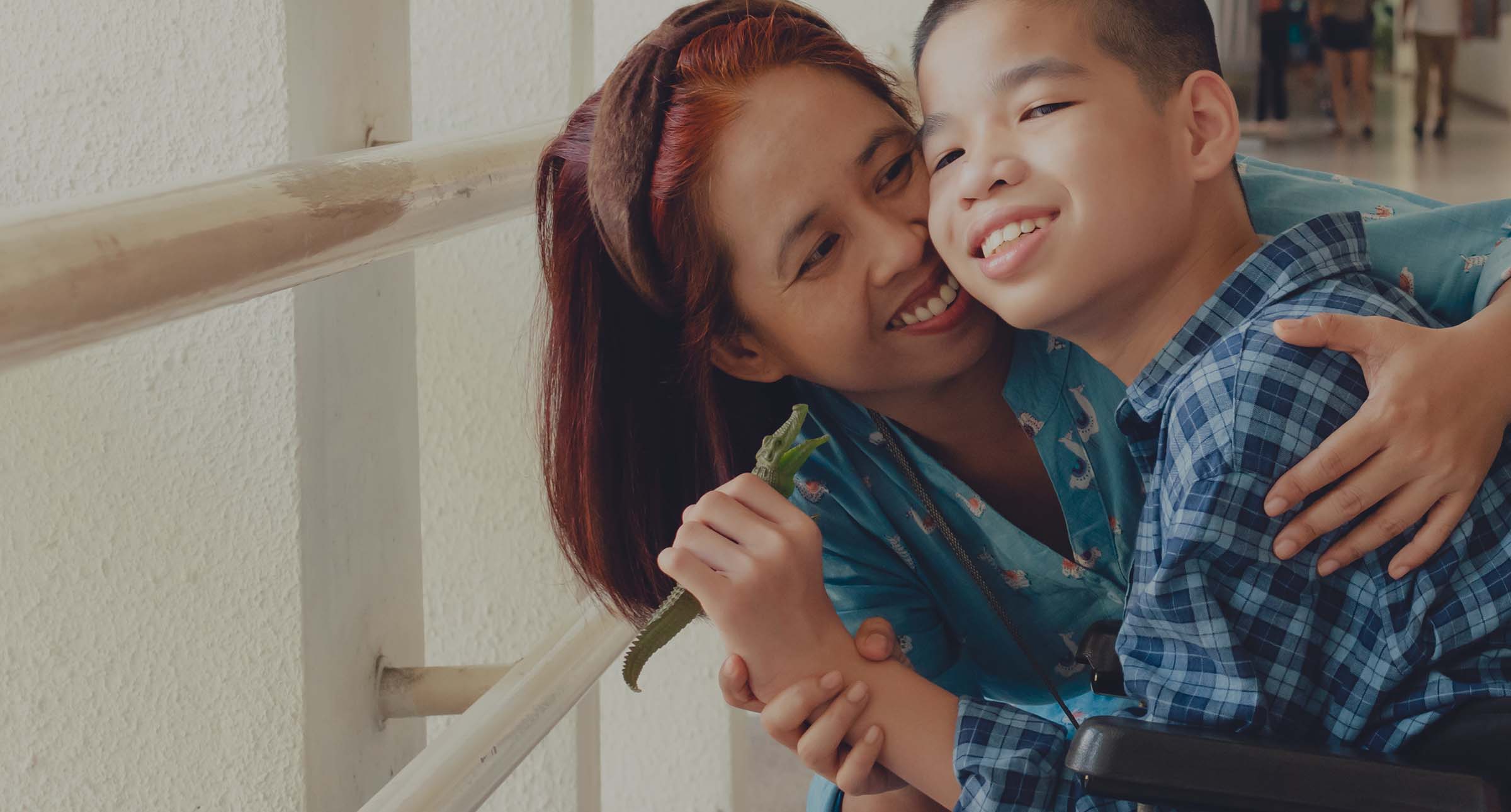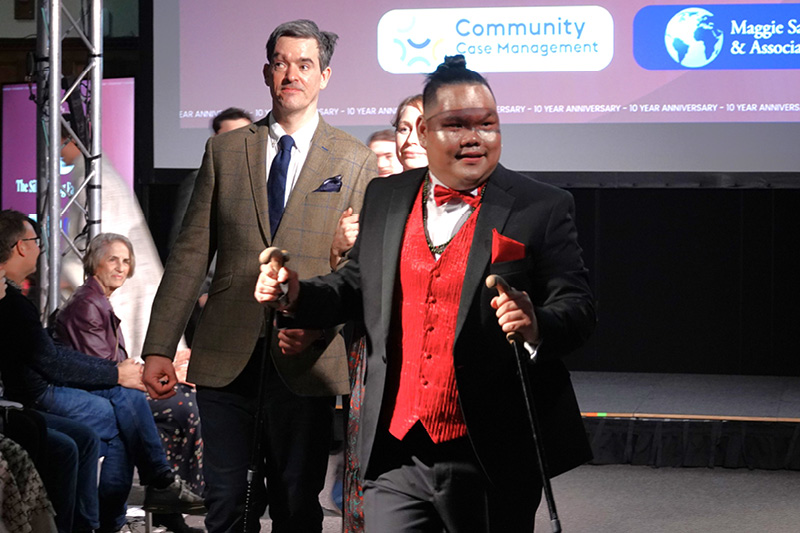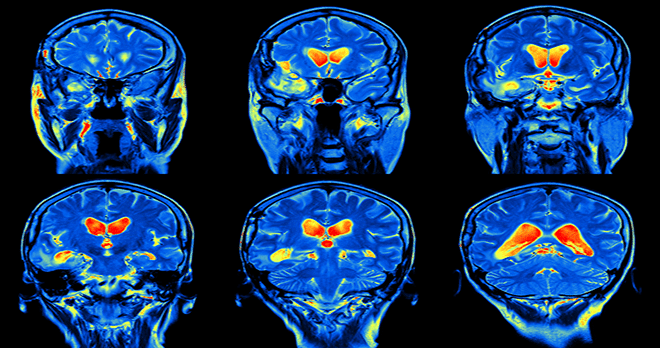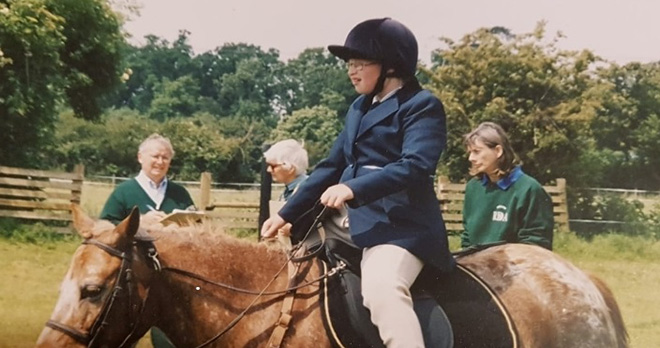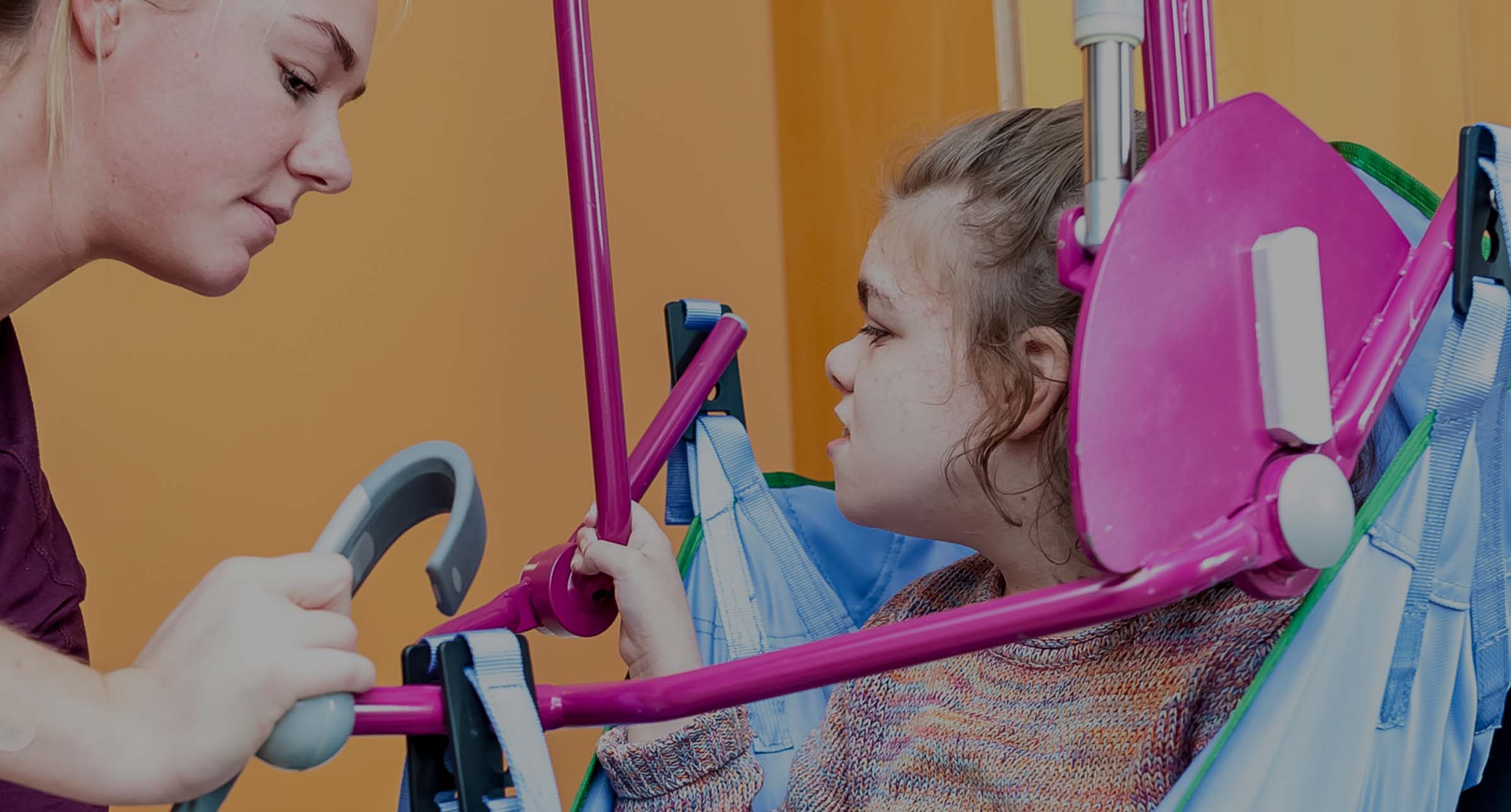What support do people with brain injury need in their early years?
When an adult experiences a brain injury, the effects are of course life-changing. But what if an individual experiences a brain injury before they’ve even had the opportunity to build a life?
The challenges facing children who have experienced brain injury are often untold. Mild brain injury in particular may result in subtle behavioural or developmental issues. These issues are often diverse; Dr Sian Rees, an expert in education support for children living with a brain injury, explains, “Some children lose a lot of their language, perhaps both expressive language and receptive language, or they might keep one and lose the other. Some young people lose their orientation and that might affect some subjects, while it doesn’t affect others. If they have learnt to read, they probably will maintain that. but then they might not be able to comprehend what they are reading. Organisational skills might be lost; or those might be intact and something else is going to go. There’s a very, very wide range of difficulties that these children could experience”. These often go undetected.
The first hurdle: identifying a brain injury
Fortunately, our client Jamie-Lee whose story has been shared in our Untold Stories Hub, managed to progress through education like many of her uninjured peers – although of course her brain injury will have presented its own challenges on this journey. Unfortunately, for some (and indeed for many) brain injured children we work with, education is a real challenge.
Appreciating that a child has a mild brain injury can be the initial challenge facing parents. “A lot of young people will come out of the hospital with nothing (no help). People will [simply not identify the issues]…particularly with children who have had, say, meningitis when they were two, doctors will simply say 'you’re back to normal now'", Dr Rees said when we asked her about the transitions back into education and beyond. “When they try to get into key stage three, Year 7’s often very good because they’re looked after incredibly well. In Year 8, the whole cohort is told “you’re older now. You’re grown up. We’re looking after the Year 7s”, but the child with the brain injury can’t make it. It’s at that point that the parents will remember the meningitis, will look into what it is, or get in touch with me, or they might talk to the SENCO and the SENCO might know somebody to talk to.”
Children’s coping mechanisms can also mask issues in education, as Dr Rees has found in her work. “Another issue we often pick up on is adolescents pretending to be able to read when they really can’t read. At that point, if I ask 'Were you ever in hospital for a longish time?', I often hear back 'Oh yes, when I was seven. I had chicken pox and I ended up in intensive care', and I think 'Oh right, here we go again'. Nobody’s identified this; nobody’s put it together with a brain injury. And because I work for Hospital Education Service in Bristol as well, this is when we can pick it up locally”.
"individuals may be able to state that they’re coping quite well, they may even on the surface appear as though they’re coping quite well, but actually they may not even be able to get themselves appropriately dressed in the morning"
This narrative is matched by what Dr Alyson Norman – who researches best practice in brain injury rehabilitation at Plymouth University – sees as part of her academic research and her work with the Anchor Point special interest group. “For many individuals, once they leave hospital, the brain injury is either not recognised at all or, where it is recognised, the actual impairments that they experience as a result of that brain injury are not fully recognised. So individuals may be able to state that they’re coping quite well, they may even on the surface appear as though they’re coping quite well, but actually they may not even be able to get themselves appropriately dressed in the morning.”
What support is available for children with brain injury?
One method of support for a child who needs help through education is (as most commonly referred to) an EHCP plan, or Education, Health and Care plan designed for children and young people aged up to 25 who need more support than is available through special educational needs support. You can find out more about these for children with cerebral palsy in our guide here. Provided by a local authority, an EHCP is designed to offer a child living with brain injury the support they need in their early years and as they progress through school.
"Every one Local Authority has their own way of doing it"
Unfortunately, though, an EHCP isn’t a ‘silver bullet’. Parents can often find, as has been the experience of our clients, that an EHCP will not meet the needs of their child due to lack of specificity. In this event, they can appeal the plan and request reassessment by their local authority. There are, however, other issues with EHCPs beyond their alignment to the child’s specific needs. One of the key ones is what an EHCP does. “I’ve talked to the parents about what an EHCP is and what it isn’t in our particular Local Authority. If I were talking about it in a different Local Authority there may be some money attached to it. In the one I’m talking about for this particular child there is not. It is just a description of the child, a description of what he needs, and some strategies of what the school can follow. Every one Local Authority has their own way of doing it ” Dr Rees says of EHC plans.
A spoke in the education support wheel
For our clients, early years education is one untold story of brain injury where our Team Around the Client approach comes to the fore. Making an appeal against a Local authority decision regarding special educational needs is a discrete area of law requiring expert education law advice. The Special Educational Needs and Disability Tribunal (SENDIST) is an independent Tribunal which hears and decides appeals against the decisions made by local authorities concerning a child’s special educational needs, as well as considering claims of disability discrimination in schools.
Litigators will include the legal fees in challenging a local authority decision and a SENDIST hearing as a head of loss/future expense in the personal injury claim. The professional deputy/trustee can also apply interim payments to supplement the Local Authority provision with private therapeutic intervention and one to one support in the classroom, and to challenge the EHCP, the team becoming a spoke in the wheel of educational provision.
Furthermore, as we build a multi-disciplinary team of case managers, occupational therapists, physiotherapists, SENCOs and more around our young clients, our solicitors engage closely with the educational needs of children living with brain injury. This may involve attending annual reviews of an EHCP, ensuring life skills are taught alongside academic ones (such as handling money), or working with case managers and SENCOs to develop a timetable that considers a child’s fatigue and tolerance thresholds when putting in private provision. One example of this last element might be supplementing PE lessons with a physiotherapy session.
"I don’t think any Local Authority, probably, should be having their own ABI expert. What I would like to see is groups of authorities perhaps employing somebody who is shared amongst them"
Unfortunately, for those who aren’t entitled to compensation for a brain injury, support in education fits the mould for a lot of things in the field – it’s a postcode lottery. “The SHIPS Project was set up to cover the geographical areas that the local hospital covers, so I’ve got the experience of many Local Authorities, and I think that’s been one of the eye openers for me. Other educational staff have thought ‘yeah we’re working fine within our Local Authority’, not realising all the other youngsters in other Local Authorities around them haven’t got access to what they do”, says Dr Rees. “I don’t think any Local Authority, really, should employ their own ABI expert. What I would like to see is groups of authorities employing somebody who is shared amongst them. Then there is always somebody a school or parent can turn to and good practice may be shared between Local Authorities. There’s good practice in a lot of schools, and I feel that much of my job is sharing that from one school to another, from one Local Authority to another”.
The quality of life that’s been saved
There is hope that the Government’s proposed ABI Strategy, that has been in consultation this year, will address the many concerns in the brain injury community; not least the postcode lottery that is evident across the board of brain injury support. There is optimism that positive change is on the horizon, and I personally hope that more work is done to help children who have experienced brain injury get the best possible start in life.
Early years support is essential for young people with brain injury, beyond the acute hospital care that does a vital job of rehabilitating individuals back into the community. “The problem with seeing good hospital care as the ‘be all and end all’ is that if you save a life, you are then ultimately responsible for it. And what our NHS has been less good at is actually that follow-on care, the being responsible for the life that’s been saved,” says Dr Norman about where we are now. She sees, as do many in the field of brain injury, that good care is “about moving away from this idea that brain injury is something that you recover from miraculously after a short period of time and recognising it as a lifelong condition for many, many people and for many families.”
"good care is “about moving away from this idea that brain injury is something that you recover from miraculously after a short period of time"
Dr Norman builds her experience from the story of her own family, and what can go wrong with early years support. “My brother had a brain injury as a result of a road traffic accident in 1993 and had actually had several previous brain injuries that had been left fundamentally undiagnosed previously”, Dr Norman told us. “There was no support for us as family. We were left to muddle through and to try and support him both physically and emotionally in the best way that we could whilst dealing with an awful lot of problems ourselves. That resulted in a complete breakdown of our family and, ultimately, in him taking his own life”.
Just as the child’s needs often go unrecognised in schools, support for the family is largely non-existent with parents having to navigate opaque SEND systems and bureaucracy, particularly when transitioning to secondary school.
Brain injury and bad decisions
Dr Norman’s personal experience also speaks to the next Untold Story of brain injury that Stuart Brazington will be focusing on. Without the right support in early years, unfortunately vulnerable individuals with a brain injury can often find themselves acting out in school. Changes in school can lead to behavioural issues that, for someone who doesn’t have experience in brain injury, may be difficult to understand, as Dr Rees explains: “For any young person, the teaching style has to be suitable; expressed in a way the young person can understand. That need is magnified for somebody with a brain injury because they are much less flexible than other young people and simply cannot comprehend why that teacher can’t explain to them properly. They will either internalise and completely shut off, refuse to go to school, put their head on the desk - or they might become violent, might say things to the teacher that they shouldn’t be saying”.
"you will not make wise choices"
Once this happens, a lack of insight into their own brain injury might lead to further issues outside of school as well. “Making choices is very difficult,” Dr Rees explains, “Your working memory tends to be shortened by a brain injury. So your ability, or rather lack of ability, to hold things in working memory so that you can make a choice is impaired, so you will not make wise choices”. These difficulties when making choices can often lead to risk-taking behaviour and decisions around friend-groups that may lead to petty crime or other issues that Dr Norman understands all too well from her own experience. You can read more about Dr Norman’s personal experience in an article she wrote for our Team Around the Client Magazine.
Next steps for SEND provision in England
Similar to the ABI Strategy, there are glimmers of hope specifically in the area of SEND provision for England.
Thanks to raised awareness of the current shortcomings in SEND provision, not least the report by the Children’s Commissioner titled “Voices of England’s Missing Children”, there is now recognition that reform is needed. The areas that the consultation aims to improve upon include funding, established standards, early intervention and support for families and guardians; all issues that could address the concerns raised here.
Though consultation closed on 22nd July, I am proud to say that Anchor Point – the organisation for families of brain injured individuals I am involved in with other leading members of the brain injury community – has offered detailed feedback on the green paper. Sarah Haworth, a member of the group, provided this feedback as she felt there were real issues with the green paper and how it failed to address brain injury for the individual and their parents/guardians.
“There were some fundamental flaws with the paper, stemming from its reliance on data that is used from ‘Special educational needs and disability: an analysis and summary of data sources June 22,’” Sarah said. “This data presupposes that SEN largely is developmental and not acquired through illness and injury. Due to the flaws in the system, even identified in the Review, this data depends on poor diagnostic and NHS provision”.
Indeed – as referenced by Sarah in her feedback to the review – this presupposition about the primary causes of children’s Special Educational Needs ignores the scale of brain injury amongst children, as well as how it can go unidentified. “These children simply disappear from the statistics”, Sarah said as she highlighted the lack of services to identify child brain injury in her own area of Devon. “The failure of Devon CCG to recognise paediatric brain injury impacts not only on children’s health and wellbeing but also on their family, social care provision, on educational provision, on data available for local and central government”.
As referenced previously in this article, and as Sarah recognises in her feedback, where the lack of recognition and understanding of child brain injury is making the most impact is on the criminal justice system, something that has been highlighted in recent research. As Sarah states, ‘This is perhaps the biggest failing of education, health and social care services in England and Wales, the failure to prevent these vulnerable children ending up in the criminal justice system."
We are fortunate at Anchor Point, as an organisation that aims to improve the family experience of brain injury, that we are made up of members like Sarah who understand well the issues faced by children with a brain injury. We hope that her feedback is heard and are hopeful that we will see real change in the postcode lottery of SEND provision across the country.
Discover the other Untold Stories of brain injury
Brain injury remains little-understood by wider society. Here we hope to share some of the key Untold Stories of brain injury and how they affect individuals and their families.
